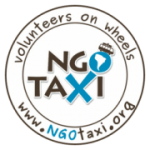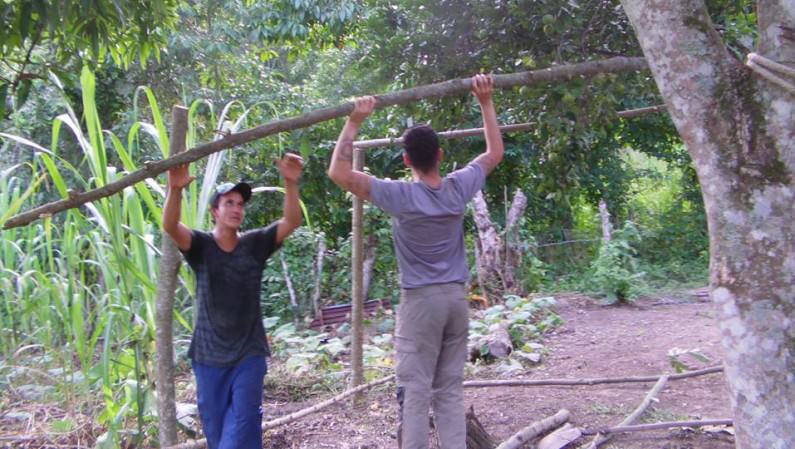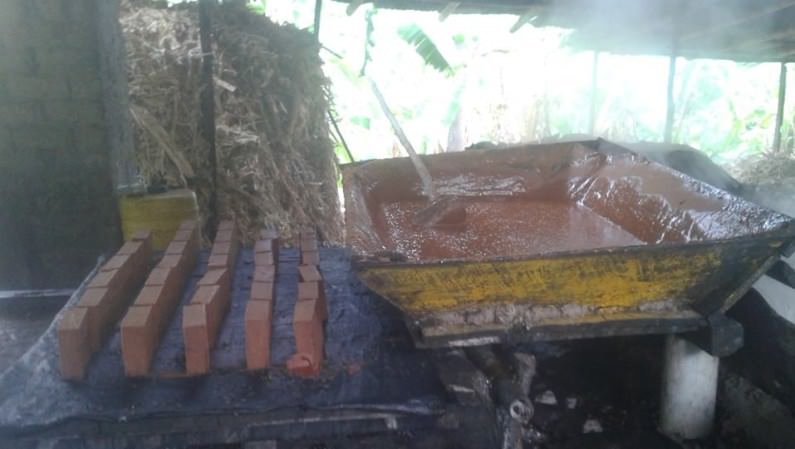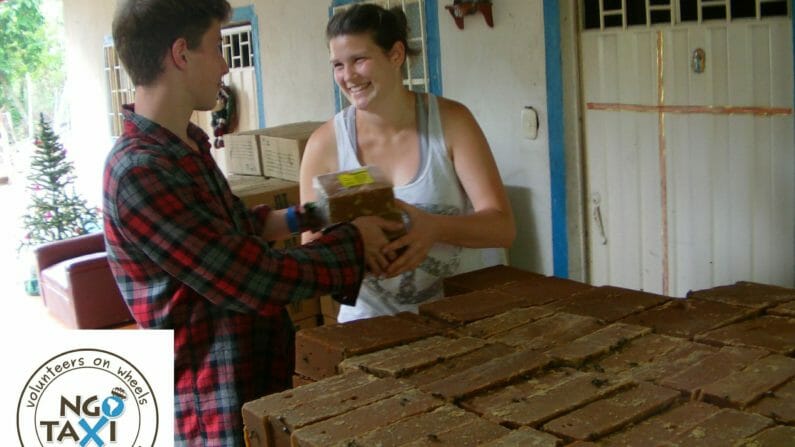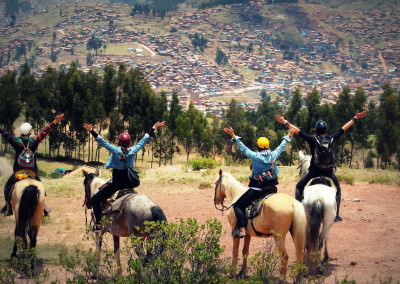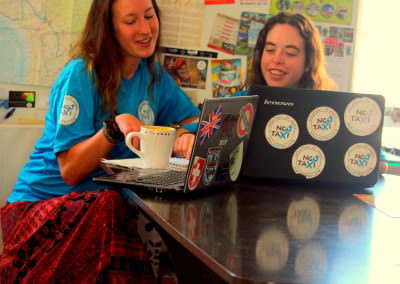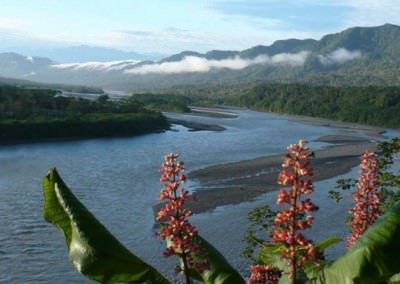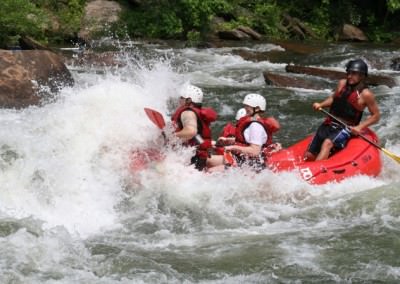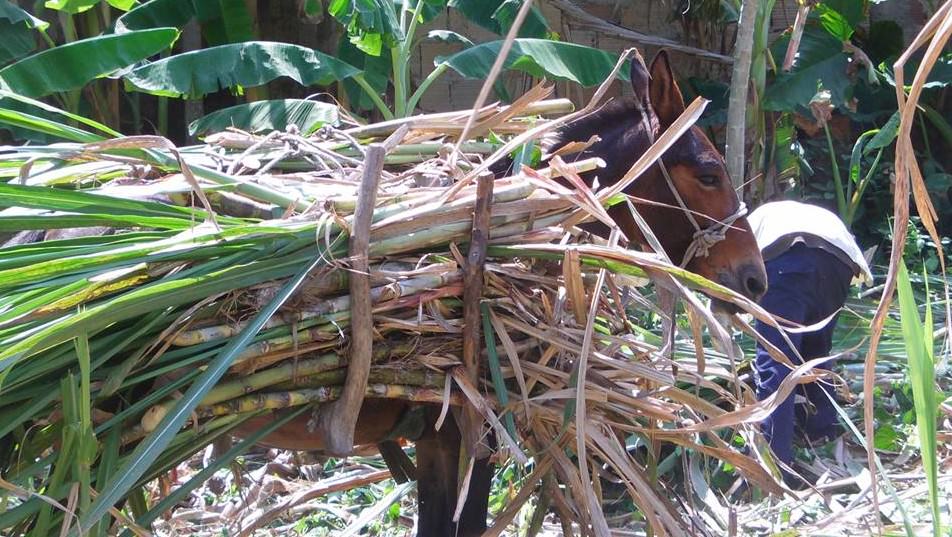
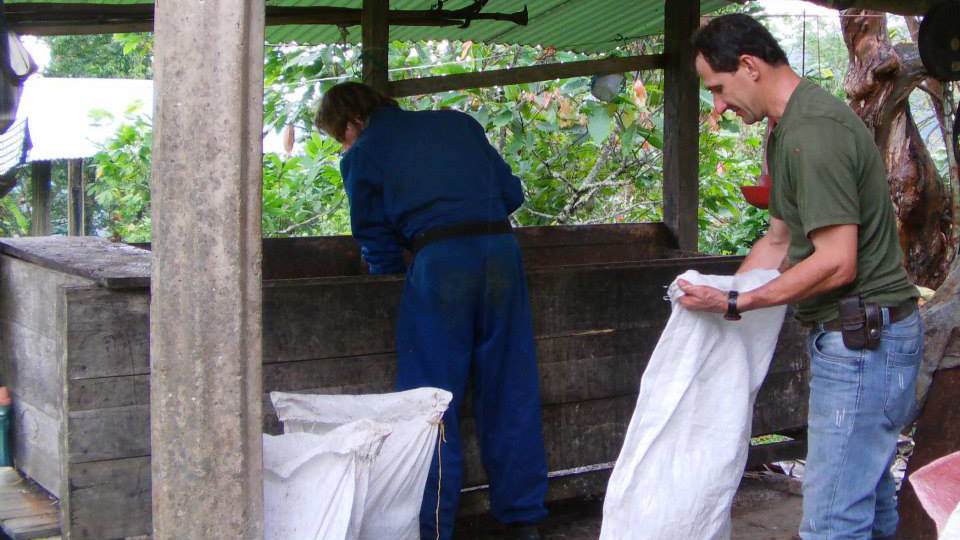
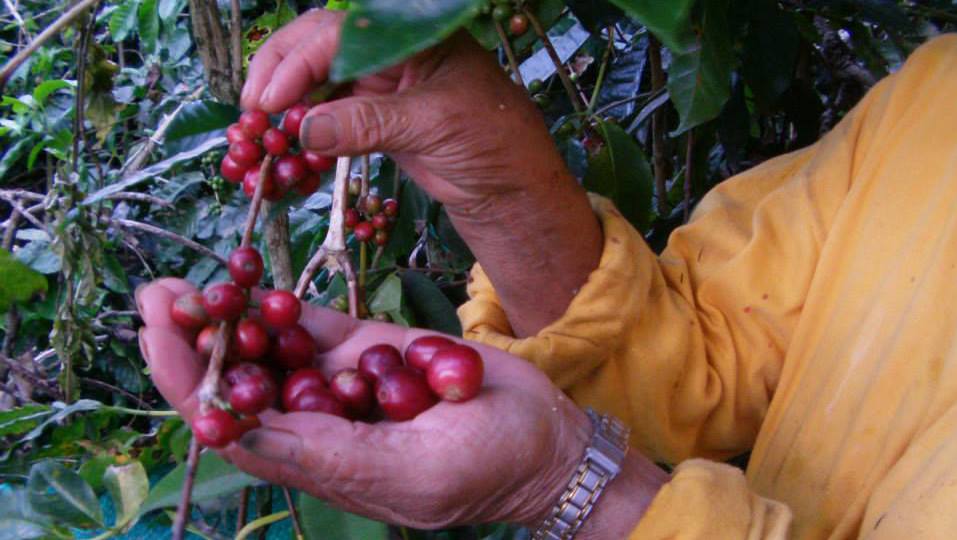
Help Local Farmers Build Their Businesses to Gain Autonomy
Do you enjoy working out-of-doors, or do you have an interest in learning about farming and agriculture? Do you have expertise in this industry, and want to share your skills? We at NGO Taxi are offering you the chance to work with a variety of local, small-scale producers of coffee and sugarcane in a beautiful and rural part of Colombia, a fascinatingly diverse country filled with incredibly welcoming people and stunning landscapes. We need YOU to help us unite and solidify local agricultural farms, so that they can stand in competition with large-scale industries and keep its surrounding community alive.
This project is part of our Colombia Volunteer Circle, in which you can combine up to four projects located in the same region into one comprehensive program.
Pricing
€ 1479,00 – first month
€ 1429,00 – second month
€ 1379,00 – third month, and after
HELP LOCAL FARMERS WHILST EXPLORING THE RURAL BEAUTY OF COLOMBIA!
Included Services
- Accommodation and three meals a day (Mon-Fri; one meal on a Saturday and none on a Sunday).
- Pickup and transport from airport.
- Pre-arrival welcome pack.
- Welcome Dinner.
- Complimentary t-shirt.
- 24 hour support.
DETAILS
Project Description
Problems:
The area in which you will work is one of the main producers of Colombian coffee and sugarcane in the region. It is home to more than 1000 small farms and producers, which have formed a wide range of local associations which regulate and control the crop production of these businesses, and ensure good quality coffee beans and sugarcane to sell on national and international markets.
Two issues have steadily been becoming more and more problematic, and now pose a real threat to these farmers’ livelihoods. One is that, although many coffee farmers have already become more stable and independent due to the support they receive from local associations (e.g. Fe de Cafe), sugarcane farmers do not have this support, and they still need to keep up with new technologies in order to gather large-scale support that doesn’t exploit them. One example of this is that the government is now favoring those businesses who can produce sugarcane in pre-packed blocks, which requires the acquisition of some very expensive machinery which adheres to very strict hygiene standards. Small-scale producers with little to no excess finances obviously cannot afford this, but are ostracized from the sugarcane industry because of it. Larger companies and chains are taking advantage of this by buying out small family businesses or, if this is not possible, forcing down the price of sugarcane so that it is no longer economically viable for the small farms to continue. The second issue is that farmers are having real difficulty in finding labor as many young people are leaving the countryside for the cities, and farmers are often unable to pay salaries or, if they do, they instead can’t reinvest in their farms. As a consequence they have to take on the burden themselves; many find that there is therefore no profit in farming, and so decide to abandon their land. Both of these issues obviously have knock-on effects for the local economy, and so as a broader consequence, on the local infrastructure and wider community.
Solutions:
Farmers need help to create the financial resources to reinvest in their businesses and to buy the new machinery and employ the laborers which will make these businesses grow and stabilize, so improving their quality of life, creating more jobs, and encouraging local people not to leave for the cities. Therefore, the objective of these two projects is to help farmers to recover their land so that they can harvest more coffee and sugarcane and return to the forefront of these crops’ production.
Short-term plans: To work with the farmers to organize, clean, sow, harvest, and maintain the production of their coffee and sugarcane crops. To help the farmers band together to buy and share new build new industrial-scale coffee grinders and trapiches (sugar mills) for sugarcane; the farms will be reinvesting the money that they normally pay for labor into this new equipment, so that they can compete and run their farms independently and self-sustainably again.
Long-term plans: Once the new machinery has been installed, these projects aim to assist farmers in increasing production so that more crops can be exported. This will make their businesses grow and become stable, leading to a need for local labor and therefore creating more jobs for local people. By helping the farmers, volunteers are helping to keep farming alive!
Volunteer Responsibilities
Voluntary duties will vary from day to day and season to season, depending on the current needs of the farm and at which point in the agricultural cycle you arrive. You can choose to focus on sugarcane or coffee farming. These are the general tasks you are most likely to be asked to help with:
- Assisting with agricultural work (planting, harvesting, etc.).
- Building trapiches.
- Constructing coffee grinders.
- Repairing or lending assistance in repairing farm machinery.
- Working in all areas of coffee and sugarcane production – drying, grinding, processing and packaging.
- For those with the skills, offering creative ideas in order to improve crop production, marketing of the finished products, and business management.
- Helping to produce jams, smoothies, and juices to sell to local businesses in order to raise funds for the acquisition of new machinery.
- Assisting in or running educational courses for local older students in sustainable agricultural techniques, such as composting and fertilizing.
- Helping to maintain an organized and clean working area on the farm.
- Producing marketing materials for the project.
- Project reporting and monitoring.
The exact tasks you will be asked to carry out will depend on the current needs and priorities of the project as determined by the project organizer and NGO Taxi management. The tasks stated here are therefore examples of some of the possible types of activities you will be asked to do.
Work hours:
You will work roughly five-six hours a day, Monday to Friday, from 7am until 2pm, including a lunch break; any additional hours you wish to work in the afternoons will be greatly appreciated, but are by no means obligatory.
Location
The project is centered around a small village, which is also where your accommodation is, two hours from Colombia’s capital, Bogotá. This village is close to a larger town, which has shops, internet cafes, restaurants, ATMs, and night life. Depending on which farm you are assigned to, you may be working in the village itself, or within 30 – 45 minutes of it by bus.
Transportation
Buses from the village to the main town leave frequently throughout the day and cost around COP $2500 per trip, taking about thirty minutes (not included in the project fee). There are also plenty of taxis (including mototaxis). The project organizer can also offer their own transport, a car for a total of five people, for a small fee. There are also very frequent buses to Bogotá, run by a handful of companies, and to several nearby towns and villages.
Buses from the village to the main town leave frequently throughout the day and cost around COP $2500 per trip, taking about thirty minutes (not included in the project fee). There are also plenty of taxis (including mototaxis). The project organizer can also offer their own transport, a car for a total of five people, for a small fee. There are also very frequent buses to Bogotá, run by a handful of companies, and to several nearby towns and villages.Buses from the village to the main town leave frequently throughout the day and cost around COP $2500 per trip, taking about thirty minutes (not included in the project fee). There are also plenty of taxis (including mototaxis). The project organizer can also offer their own transport, a car for a total of five people, for a small fee. There are also very frequent buses to Bogotá, run by a handful of companies, and to several nearby towns and villages.Buses from the village to the main town leave frequently throughout the day and cost around COP $2500 per trip, taking about thirty minutes (not included in the project fee). There are also plenty of taxis (including mototaxis). The project organizer can also offer their own transport, a car for a total of five people, for a small fee. There are also very frequent buses to Bogotá, run by a handful of companies, and to several nearby towns and villages.
Accommodation and Food
You will stay in the house of the project organizer. The area is fairly rural but all basic amenities are available. The house is split into two, with the project organizer and their family living in the main house and the volunteers sharing the bungalow (which includes two bathrooms). There is also a garden and outside sitting/dining area. If there are up to six volunteers, they will have private rooms; if there are between seven and ten they will each share a two person dorm room (in bunk beds).
The internet can be very slow, although if you need to you can take the short bus ride into town to use the internet cafes there.
You will be provided with three meals a day from Monday to Friday. On a Saturday you will be given one meal, although none will be provided on a Sunday. These meals are shared with the family.The project organizer is very happy to provide for any special dietary requirements (vegetarians and vegans, celiacs, any allergies or intolerances, etc.) if advised before you arrive. You are welcome to use the kitchen to prepare your own meals, as long as you keep it clean and tidy, or to eat in the restaurants in the village or town. If you choose to eat in a restaurant rather than share the food the project organizer has provided, this will be at your own cost.
Prerequisites
Professional requirements:
In general, all that is required of you is to be enthusiastic, willing, and prepared to learn new skills, displaying a hardworking attitude and respect towards the local community and those you will be living and working with.
Any knowledge of agriculture, farm machinery or mechanical engineering would be particularly useful. Please also be aware that this work takes place outside, in all weathers (though due to the climate zones it’s never really cold), and can be very physical and labor-intensive – so be prepared for a good workout, and bring suitable clothing!
Generally, you should be ready to respond to changes and be able to deal with the unexpected for any work or travel in South America. For this program in particular, you should be willing to live and work in areas where the standard of living is much lower than that in the EU or US.
Language requirements:
You must have at least a conversational level of Spanish for this project, as few local people speak any more than basic English, if any English at all. However, the project organizer has a very good level of English, having lived in England for several years, and can help you if you have any problems. Having said that, there would be little point in volunteering in another country if you could not communicate with the people you live and work with. After all, the better the Spanish you speak or learn before you arrive the more you can bring of yourself to the project, the more you can communicate and understand, and the more you will get out of your volunteering experience. In any case, you will be amazed how much Spanish you will learn by simply living and working in another country. We can help you with this! We offer a wide array courses suited to your level, including specialized courses, for as many course weeks as you require Please see https://ngotaxi.org/language-course/ for more information.
Additional Information and Specials
Minimum age:
18 years
Start dates:
1st or 3rd Sunday each month.
(Individual arrival dates possible, surplus applies).
Length of stay:
Beginning at 4 weeks.
Immunizations:
It is absolutely necessary that you have current immunizations. This includes, among others: yellow fever (certified), tetanus, typhoid, diphtheria, hepatitis A and B, and rabies. You’ll receive exact information pertaining to immunizations needed in Colombia, as well as your personal preliminary documentation following your successful application with us.
You can inquire in advance concerning immunization requirements by consulting medical authorities in your country of origin, e.g. in the US, check with the Centers for Disease Control and Protection
http://wwwnc.cdc.gov/travel/destinations/traveler/none/ecuador.
Please make sure that you have up-to-date vaccinations for all of these diseases. NGO Taxi cannot be held responsible for the provision of vaccinations for their volunteers. It is the responsibility of the volunteer to ensure that they have followed up-to-date medical advice.
Included services:
- Accommodation including bedding.
- Three meals a day (Mon-Fri; one meal on a Saturday and none on a Sunday).
- Pickup and transport from airport.
- Pre-arrival welcome pack.
- Welcome Dinner.
- FREE NGO Taxi t-shirt.
- 24 hour support.
- Certificate of successful volunteer participation on your project.
Excluded services:
- Daily transport from accommodation to project site.
- Weekend or non-organized activities.
- Snacks and non-mealtime drinks.
- Travel insurance.
- Personal spending.
- Any additional items not listed in the ‘Included Services’ list.
Special Conditions:
In general, you must bear in mind that you will be representing NGO Taxi to communities and project partners and are therefore required to demonstrate a professional attitude. Lightweight long sleeves and trousers are recommended for the area, as it can get very hot and there are mosquitoes.
Please bring clothes you do not mind getting dirty and which will protect you from all weathers (strong sun, cold, and rain). Keep any piercings or tattoos covered.
You will need to provide a criminal background check, medical records, proof of travel and medical insurance and any professional certificates.
During this program, you will be in contact with a lot of people. However, you might also be the only volunteer working with local staff at times, so be prepared for variety in the people you will meet and work with.
Free Time Activities
NGO Taxi provides tours in other areas of Colombia, such as the Lost City trek or a trip to Punta Gallinas. Sounds like the thing for you? Then take a look at our page https://ngotaxi.org/tours/ for more information!
And if you want to explore this fascinating and diverse country on your own, may we suggest…
- Joining a graffiti tour in Bogotá, one of South America’s graffiti hotspots, and learning some fascinating facts about this hugely diverse and socially expressive art form (highly recommended!).
- Visiting the underground salt cathedral of Zipaquirá.
- Taking a trip to the beautiful colonial town of Villa de Leyva.
- Experiencing the famous nightlife of Medellín and Bogotá.
- Testing your moves on the dance floor in the Colombian, possibly even South American, capital of salsa: the city of Cali.
- Staying on a coffee finca in La Zona Cafetería.
- Seeing some of the amazing archaeological remains of San Agustin and Tierradentro.
- Hiking in the glorious Tayrona national park.
- Watching the famous Barranquilla carnival.
- Exploring the Caribbean coast, including a day trip to Las Islas Rosarios off the coast of Cartagena.
- Meeting indigenous communities or taking a survival training course in the Amazon.
